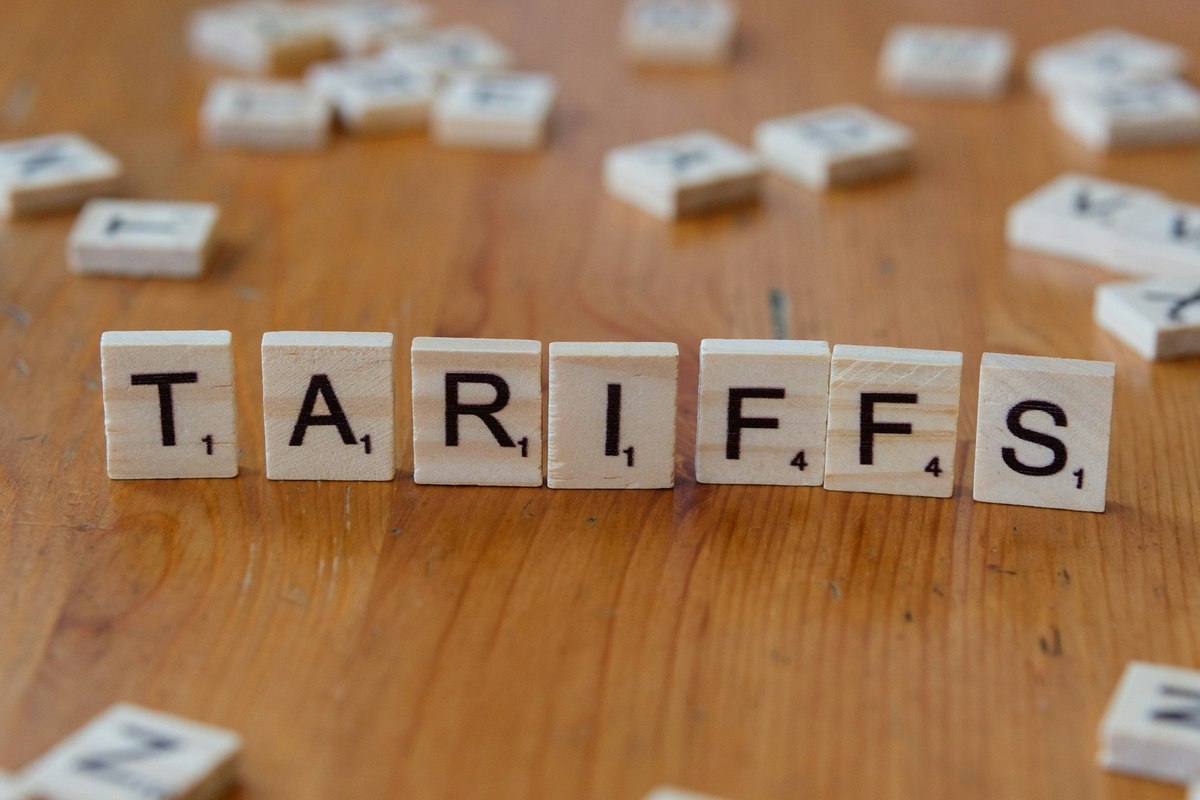
Most Britons expect tariffs to push prices up
Key takeaways:
- Tariffs are seen as inflationary – Across every category, from cars to cosmetics, the dominant view is that global tariffs will push costs up
- Price hikes are expected to be moderate – While concern is widespread, across most areas more respondents lean toward “increase slightly” than “increase significantly”
- Uncertainty lingers at the margins - The “Don’t know” responses hover around 9 - 18% depending on the sector
In the wake of upheavals in global trade, data from YouGov’s Tariffs Sentiment Tracker finds that almost all (93%) Britons are aware of tariffs and most expect them to push prices up across a wide array of goods and services.
The tracker measures sentiment among British consumers towards the changing economic environment on a weekly basis. It shows that nearly half of those polled (46%) say they’ve seen, heard or read a fair amount about the global tariffs announced by the US and have a decent understanding of them.
Over two in ten (23%) of British adults note that they know a great deal about tariffs since they’ve been closely following related news and discussions. A similar proportion (24%) say that while they have heard a bit about tariffs, they don’t know very much about them. Fewer than one in ten say they’ve either heard nothing at all (4%) about it or they don’t know (3%) about them.
Among the aware Britons, price hikes dominate expectations
Asking only the Britons who are aware of tariffs revealed the areas where most expect prices to increase are electronics (74%) and cars (71%). The fewest expect price increases in health and beauty products (57%).
Electronics (e.g., mobile phones, tablets, laptops)
Three quarters (74%) anticipate prices rising, with 31% thinking they will be significant and 43% reckon they will be slight. One in seven (14%) believe prices will stay the same, and only 2% foresee a decrease. There are generational differences, with 82% of those aged 55+ being most likely to think tariffs will drive prices of electronics items up, a figure that falls to 64% among the 18–24-year-olds.
Cars
Among Britons aware of the tariffs, a combined 71% expect prices to increase – 36% significantly and 35% slightly. Only 15% believe prices will stay the same, while 2% expect a decrease. Here, more women than men aware of the tariffs say they will drive up prices significantly (39% vs. 33%) and a quarter (24%) of young consumers (18-24 years) expect car prices to stay the same, the highest among all age groups.
Groceries (e.g., food, beverages, household consumables)
Grocery prices are expected to climb by 70% of tariff-aware Britons though most see it happening slightly (47%) rather than significantly (23%). Only 21% think prices will hold steady, while very few expect costs to fall.
Tracker data suggests that the younger you are, the more likely you are to believe that tariffs won’t impact grocery prices. Three in ten of 18- to 24-year-old tariff-aware Britons (31%) expect grocery prices to stay about the same. This belief fades as you go up in age with a quarter of 25–34-year-olds (25%) sharing this expectation. At 22% (35-44 years old), 19% (45–54-year-olds) and 17% (55+ years old), others follow.
Domestic appliances (e.g., kettles, coffee machines, ovens)
For domestic appliances, 67% foresee rising prices, but again, most expect only slight increases (46%) rather than sharp ones (20%). One in five expects no change, and only 1% are optimistic about potential decreases.
Clothing (e.g., T-shirts, jackets, shoes, accessories)
Clothing follows a similar pattern with 66% anticipating an increase in prices (18% significantly and 48% slightly). About 21% expect prices to remain as they are, and decreases are expected by just 2%.
Leisure and domestic/international travel
When it comes to travel, two-thirds of respondents (67%) anticipate higher costs for holiday packages, flights, and hotel stays, with 25% expecting sharp increases and 41% predicting modest ones. While 18% expect no change, 14% aren’t sure.
Utilities (e.g., electricity, gas, water, internet)
Utilities follow with 65% of respondents expecting an increase (27% significantly, 38% slightly). A quarter (24%) think prices will remain stable, and optimism is rare – only 2% think prices might fall.
Household goods (e.g., furniture, kitchenware, home décor, bedding)
For household goods, 62% of respondents expect prices to rise, with 18% anticipating significant hikes and 44% expecting more modest ones. Nearly a quarter (24%) of Britons think prices will remain the same, and only a sliver expect reductions. Where three in ten (29%) men say prices of household goods will stay the same despite tariffs, two in ten women (20%) hold this view.
Fuel (petrol/diesel)
Fuel is another area of concern, with 61% expecting an uptick in prices - 24% significantly, 37% slightly. Just over two in ten, 22%, believe prices will stay about the same, and only 6% foresee any decrease. More men (28%) than women (15%) are optimistic about tariffs leaving fuel prices unchanged.
Health & beauty products (e.g., skincare, haircare, toiletries)
Health and beauty products are at the bottom of the list in terms of expected price impact, but even here, 57% foresee an increase, mostly slight (42%) rather than significant (15%).
Methodology:
Total sample size was 2,111 adults. Fieldwork was undertaken between 24th - 25th April 2025. The survey was carried out online. The figures have been weighted and are representative of all GB adults (aged 18+).
Photo by Markus Winkler on Unsplash